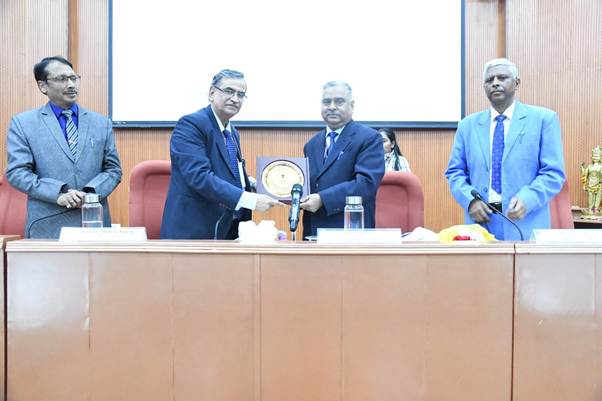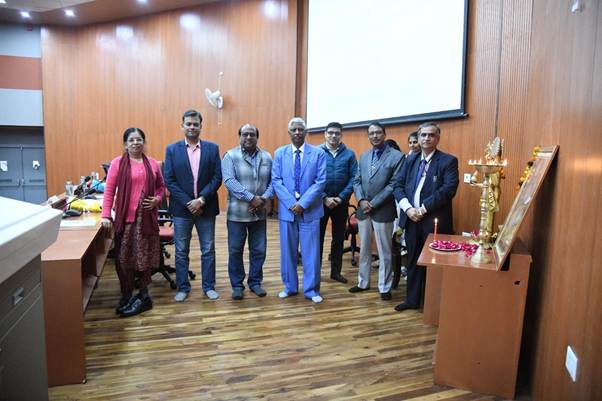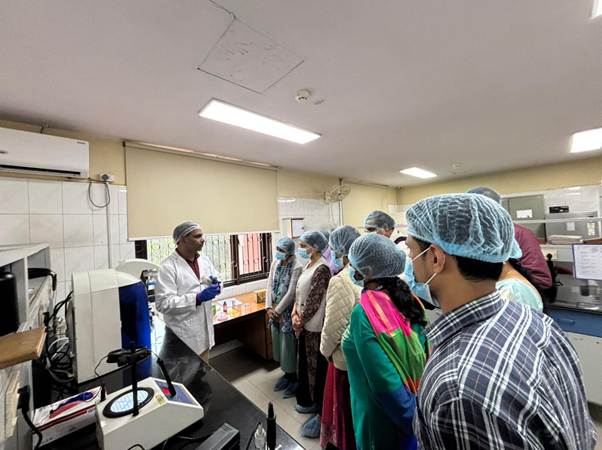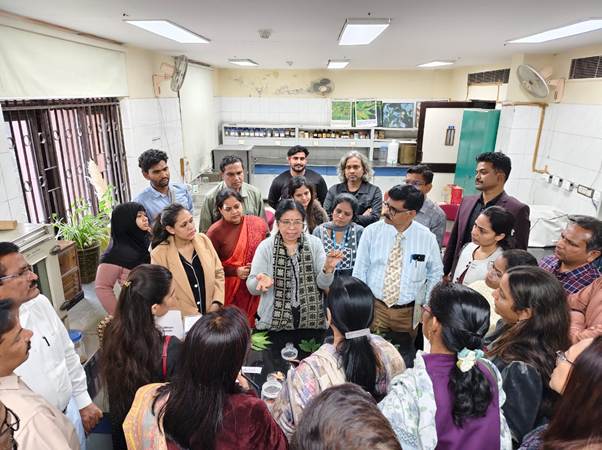AYUSH//Azadi Ka Amrit Mahotsav//प्रविष्टि तिथि: 29 NOV 2025 at 5:21 PM by PIB Delhi
India Strengthening Evidence-Based Integrative Approaches
*CCRAS–CARI Bengaluru to Host International Conference on Ayurveda and Integrative Approaches to Obesity & Metabolic Syndrome
New Delhi: 29th November 2025: (PIB Delhi//Life Line Screen Desk)::
The Central Council for Research in Ayurvedic Sciences (CCRAS), Ministry of Ayush, through its Central Ayurveda Research Institute (CARI), Bengaluru, is organising a two-day International Conference on Ayurveda and Integrative Approaches to Obesity & Metabolic Syndrome on 1–2 December 2025 at the A.V. Rama Rao Auditorium, Indian Institute of Science (IISc), Bengaluru. The conference coincides with the celebration of the 57th Foundation Day of CCRAS, an autonomous body under the Ministry of Ayush
Organised in collaboration with the Indian Institute of Science (IISc) and NIMHANS, the conference seeks to address the rising global burden of obesity and metabolic syndrome through evidence-based Ayurvedic and integrative medical approaches. The scientific event reflects the Ministry of Ayush’s vision to strengthen research-driven integrative healthcare and advance global health outcomes.
Highlighting the importance of this initiative, Hon’ble Minister of State (IC) for Ayush and Minister of State for Health & Family Welfare, Shri Prataprao Jadhav, mentioned, “India continues to strengthen its work in integrative healthcare, and Ayurveda is central to this transformation. Obesity and metabolic disorders are among the most pressing public-health challenges of our time. This conference reflects our resolve to strengthen evidence-based approaches that combine the knowledge of Ayurveda with the rigor of modern medical science. The Government of India is committed to promoting research, innovation, and interdisciplinary collaboration to enhance global health outcomes.”
The Secretary, Ministry of Ayush, emphasised, “The rising burden of metabolic diseases demands collaborative, science-driven solutions. Ayurveda offers a holistic, preventive and personalised approach, which becomes even more powerful when integrated with contemporary biomedical advancements. This conference is an important step towards expanding India’s leadership in integrative research, strengthening clinical evidence, and shaping future health policies.”
Dr. Rabinarayan Acharya, Director General, CCRAS, emphasised the scientific relevance of the conference and informed “In an era where metabolic diseases are escalating at an alarming rate, the holistic insights of Ayurveda offer powerful and practical solutions. This conference is designed to bridge traditional Ayurvedic knowledge with cutting-edge biomedical research through evidence-based dialogue. The outcomes will contribute meaningfully to integrative care frameworks, translational research and global health policy.”
Dr. Sucholachana Bhatt, the Unit Head and Organizing Secretary of the seminar, mentioned that "The conference brings together leading experts from Ayurveda and modern biomedical sciences to address the growing challenge of obesity and metabolic disorders through evidence-based integrative approaches. She added that the release of a special issue of CCRAS’ research journal JDRAS on Obesity & Metabolic Disorders, along with ten other books, reflects the depth of ongoing research and the commitment to advancing scientific dialogue and integrative healthcare.”
The conference brings together leading experts from Ayurveda, modern medicine, life sciences, and public health from India and abroad. The academic programme features plenary sessions, parallel scientific sessions, and a symposium on translational science and integrative management of Type-2 Diabetes, Obesity and Dyslipidemia. A specialised Workshop on Nanotechnology & Molecular Biology will be conducted on 2 December at the TCS Smart-X Hub, IISc. A Health Screening Camp by Samatvam, PathShodh and CARI will run on both days. Pre-conference virtual scientific deliberations were held from 25–27 November 2025. A special issue of CCRAS’ research journal JDRAS on Obesity & Metabolic Disorders, along with 10 other books, will also be released during the event.
More than 700 delegates are expected to participate, with 267 oral presentations, 120 virtual paper presentations, 70 posters, and 16 keynote and plenary talks by eminent scientists, clinicians and researchers.
The International Conference on Ayurveda and Integrative Approaches to Obesity & Metabolic Syndrome underscores CCRAS’s commitment to advancing integrative research, strengthening global collaborations and promoting evidence-based innovation aligned with India’s vision for holistic and accessible healthcare.
***//SR/GS/SG//(रिलीज़ आईडी: 2196339)
.









